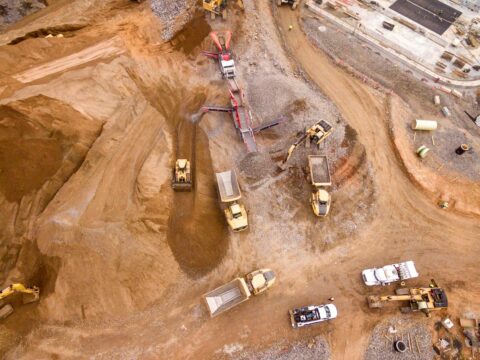Orissa HC: EPC Disputes Can’t Hide Under MSME Statutory Arbitration Umbrella : VR Tank Award Set Aside

On 10 October 2025 the Orissa High Court delivered what could become the definitive word on the territorial limits of the Micro, Small and Medium Enterprises Development Act, 2006. In W.P.(C) No. 20210 of 2025 (Indian Oil Corporation Ltd. v. Adarsh Nobel Corporation Ltd.) Dr. Justice Sanjeeb K. Panigrahi brushed aside a ₹ 2.43 crore arbitration award that had been haunting the country’s largest refiner for over two years. The Court held that a composite, turnkey “VR Tank” contractinvolving design, civil works, fabrication, erection and testing was a classic works contract and therefore lay completely outside the statutory conciliation arbitration window created for buyers and sellers of goods or services. The order not only vacates the award but also renders an ongoing execution petition infructuous, sending a sobering message to every MSME that tries to squeeze an EPC dispute into the protective folds of the MSMED Act.
The story begins in November 2017 when IOCL awarded Adarsh Nobel Corporation Ltd. (ANCL) a lumpsum, 18month EPC contract worth ₹ 20.86 crore for an additional VR (Vacuum Residue) storage tank inside its sprawling Paradip Refinery. Work stopped abruptly in June 2018. Despite repeated notices the contractor never resumed, forcing IOCL to terminate the agreement in early 2019 and engage a replacement to finish the job. ANCL, however, believed the termination was illegal. Instead of rushing to a civil court or to ordinary arbitration, it waited until January 2021 after the contract was dead and buried to register itself as a small enterprise under the MSMED Act and then invoked Section 18 of that statute before the MSME Facilitation Council, Cuttack. The Council happily assumed charge, and on 10 July 2023 passed a hefty award directing IOCL to pay ₹ 2.43 crore together with triple bank rate compound interest, to release ANCL’s bank guarantee and to unblock its vendor code.
IOCL shot back with a Section 34 challenge under the Arbitration & Conciliation Act, 1996 but withdrew it months later and chose the constitutional route. While a writ petition questioning the award itself was pending (and ultimately allowed on 20 September 2025), ANCL pressed ahead with execution. The Commercial Court at Bhubaneswar, vide orders dated 24 September 2024, 19 June 2025 and 14 July 2025, brushed aside IOCL’s objections under Section 47 CPC and kept the execution alive. That trilogy of orders is what the company asked the High Court to quash in the present writ.
IOCL argued that the Facilitation Council was coram non judice from day one. A composite works contract, he submitted, is fundamentally different from a sale of goods or a pure service agreement; it is an indivisible bundle of obligations that Indian courts have consistently held to be outside the MSMED Act. He relied on a string of judgmentsstarting with Bombay High Court’s P.L. Adke decision and culminating in Delhi High Court’s Tata Power v. Genesis Engineering ruling to show that works contract disputes must be resolved under the ordinary Arbitration Act and not through the fast track Council route. The counsel also pointed out that even if registration were optional, ANCL had obtained it only after termination, and the subject matter simply did not fit the statute.
ANCL’s counsel countered that Section 18 uses the expansive phrase “any party to a dispute” and not merely “supplier”, that registration is directory and that IOCL had participated in the Council proceedings without protest. He urged that an efficacious alternative remedy ie., appeal under Section 13 of the Commercial Courts Act existed, so the writ was barred by the alternative remedy rule.
Justice Panigrahi analysed the controversy into a single question: whether the impugned execution orders deserved interference once it was clear that the award sprang from a tribunal lacking inherent jurisdiction. A meticulous examination of the tender documents convinced him that the contract was “textbook EPC”: design, engineering, supply, fabrication, civil foundations, dyke walls, cathodic protection, testing and commissioning all for a 30,000kL storage tank. Citing Kone Elevators, Larsen & Toubro and a catena of High Court precedents, he held that such composite obligations are sui generis and cannot be bifurcated into goods and services to force fit the MSMED Act. The discretionary nature of registration under Section 8, he added, could not salvage a claim whose core fell outside the statute.
On maintainability the judge recalled that while Article 226 powers are normally exercised sparingly where an alternative remedy exists, a tribunal acting wholly without jurisdiction is one of the three classical exceptions. Since the award was “stillborn”, the executing court ought to have refused to lend it life; allowing Section 47 objections would have amounted to reopening the very validity of the decree something an execution forum cannot do. He therefore allowed the writ, set aside the award and declared Execution Case No. 585 of 2023 infructuous, though he left the parties free to pursue any remedies available under general law.
The Paradip tank litigation should serve as a cautionary beacon. For MSMEs it is a reminder that the Facilitation Council is a shield for straight forward sale or service defaults, not a sword to unlock complex, performance oriented EPC claims. For purchasers especially public sector giants it reassures that works contracts will not be dragooned into arbitration simply because the counterparty later stitches on an MSME label. And for courts, the judgment reiterates a basic principle: jurisdiction is the oxygen of every adjudication; without it, even the most meticulously reasoned award is dead on arrival.
For further details write to contact@indialaw.in
By entering the email address you agree to our Privacy Policy.



